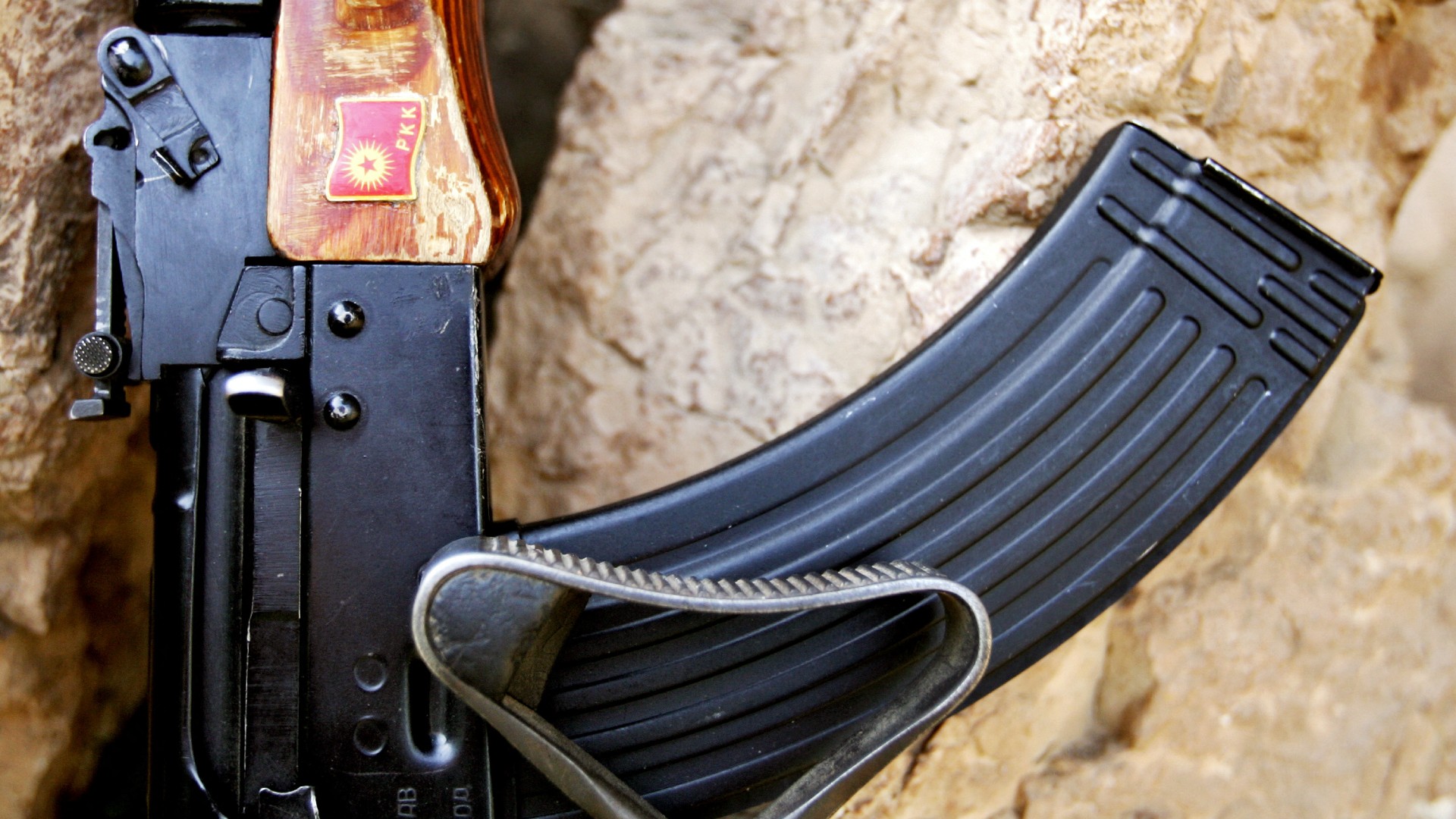TurkeyPKK clashes pause in Iraq

Fighting between the Kurdistan Workers' Party (PKK) and the Turkish military has ceased in northern Iraq following the Kurdish armed group’s decision to end its armed struggle, security sources familiar with the issue told Middle East Eye.
The PKK announced on Monday that it was disbanding after yearlong talks between Turkey's government and the PKK’s imprisoned leader, Abdullah Ocalan, who declared in February that armed struggle was a product of a bygone era.
In recent years, Ankara was able to push the PKK from Turkey into northern Iraq, denying the group free movement and forcing them to find hideouts further south of the border under constant drone surveillance.
The group, headquartered in the Qandil mountains, has a significant presence in northern Iraq. Despite sophisticated Turkish weaponry, it has occasionally shot down drones or used first-person-view toy drones to target outposts.
However, since the PKK's announcement, a relative calm has settled in the region, establishing a de-facto ceasefire.
New MEE newsletter: Jerusalem Dispatch
Sign up to get the latest insights and analysis on Israel-Palestine, alongside Turkey Unpacked and other MEE newsletters
Security sources familiar with the matter emphasised that Turkey has not formally committed to a ceasefire.
"There is no such thing as the Turkish armed forces declaring a ceasefire, withdrawing, or not intervening in hostile situations," a Turkish security source told MEE.
According to the Turkish sources, the de-facto ceasefire in northern Iraq, where PKK militants have a strong presence, depends on the organisation fully surrendering its weapons and ceasing its operations.
Despite a few minor incidents in the region, particularly in the Gara mountains and rural Dohuk, hostilities between the Turkish army and PKK fighters - including clashes, artillery shelling and drone strikes - have ceased.
Separately, Turkish defence ministry sources said on Thursday that there are plans to collect weapons from the PKK and its Syrian and Iranian affiliates through those countries' respective governments in a verified manner.
Turkish officials also told journalists this week that Turkey will not seek United Nations involvement in the disarmament process.
Regional process
Officials estimate that 8,000 to 10,000 armed PKK members are present across Turkey, Iraq, Syria and Iran. Distinct mechanisms and timelines are being established for each country, due to differing local dynamics.
In Iraq, Ankara expects PKK strongholds like Qandil, Metina and Zap to be evacuated. This will be conducted in cooperation with the Iraqi government, based on existing security agreements, and will include the collection of weapons.
In Syria, officials demand that all Kurds, including PKK-affiliated groups, will be legally integrated into the Damascus government.
This involves individual members laying down arms and potentially joining the Syrian army.
Ankara wants the Syrian Democratic Forces, a US partner force spearheaded by PKK-linked groups, to abide by the agreement they signed with the Damascus government in March.
Turkish officials believe initial confidence-building measures could include transferring border security and customs gates to Damascus's control, followed by the organisation's withdrawal from Arab-majority areas.
In Iran, while the Kurdistan Free Life Party (PJAK), the PKK's Iranian affiliate, is not seen as a direct threat to Turkey, its eventual dismantling is considered important for regional stability. Officials expect Iran's constructive cooperation, and contacts are anticipated.
In Turkey, the number of PKK militants is estimated to be between 50 and 100. Coordinated efforts by Turkish National Intelligence and the Turkish Armed Forces are expected to resolve this aspect quickly. Individuals without criminal records are reportedly free to return home.
Ankara, while verifying the disarmament process over three to four months, will ease Ocalan’s conditions. Officials told journalists in Ankara that Ocalan himself could also transition to the status of a regular prisoner, being allowed full access to his lawyer, family and visitors under the standard legal framework, which he previously lacked.
Turkish President Recep Tayyip Erdogan hinted that the appointment of "trustees" to pro-Kurdish municipalities could become an exceptional measure in the coming days.
The release of sick and elderly prisoners held on PKK-related charges would also be possible. According to officials, some changes to the penal code could enable the release of prisoners convicted of non-violent offenses.
middleeasteye.net